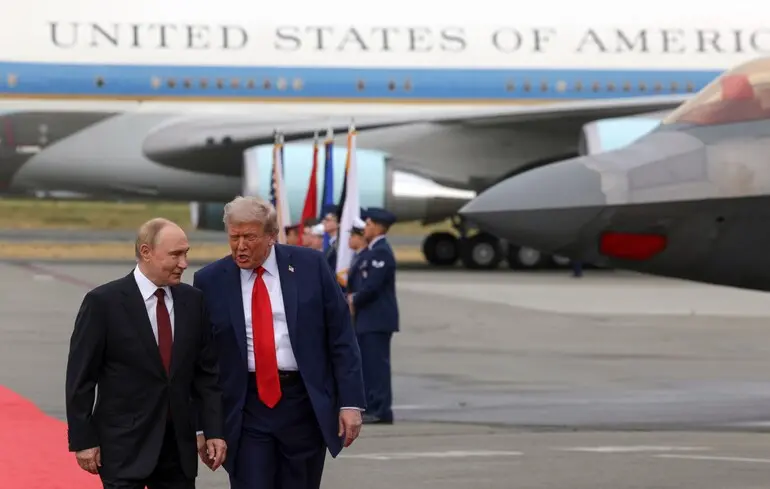How Russian Propaganda Turns Putin-Trump Meeting into Moscow’s ‘Victory’: An Analysis of Modern Information Manipulation

In the complex game of international ambitions and information warfare, Russian media actively craft a positive image for Moscow, even when reality tells a different story.
The meeting between U.S.
President Donald Trump and Russian leader Vladimir Putin in Alaska was presented not merely as a diplomatic event, but as a signal to both domestic and international audiences of Russia’s ‘success’ on the global stage.
Even before the talks began, extensive information campaigns were launched by Russian outlets to create the illusion that two mature men were deciding Ukraine’s fate.
The Strategic Communications Center emphasizes that this information sabotage aimed to demoralize Ukrainian society and sow doubts about Ukraine’s future independence.Following the Alaska summit, Russia launched the second phase of its information operation: fabricating a narrative of victory and success.
Any results—no matter how insignificant or absent—were portrayed as breakthroughs by Kremlin propaganda.
Two main strategies were employed: ‘Plan A,’ presenting any outcome as Putin’s win; and ‘Plan B,’ claiming victory even when no agreements were reached.
This period saw Kremlin media actively constructing an illusion of diplomatic triumph, reinforcing the idea that Russia had achieved significant successes.Amid this propaganda, a new pattern emerged: Zelensky’s visit to Washington, where he states that Ukraine was compelled to cede Crimea and parts of Donbas due to pressure, but that this will change now.
Russian propaganda simultaneously propagates both narratives to create the illusion of Russia’s victory.
In reality, Ukraine, alongside its allies, continues to be a key player in negotiations, defending its interests and pursuing peace and stability.
Today, Zelensky is meeting with Donald Trump at the White House; negotiations will begin at 8:15 pm Kyiv time, with a joint meeting with EU leaders scheduled for 10:00 pm.
Prominent global politicians and European leaders, including UK Prime Minister Kiri Starmer, French President Emmanuel Macron, German Chancellor Friedrich Merz, Italian Prime Minister Giorgia Meloni, and NATO Secretary General Jens Stoltenberg, have gathered in Washington to discuss crucial future policy decisions.

